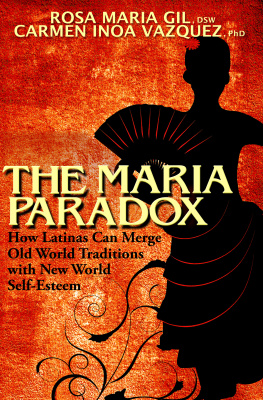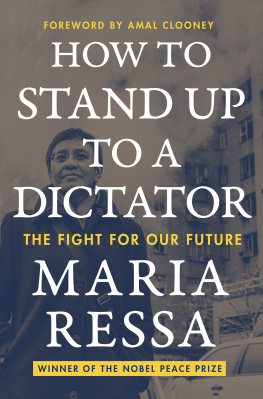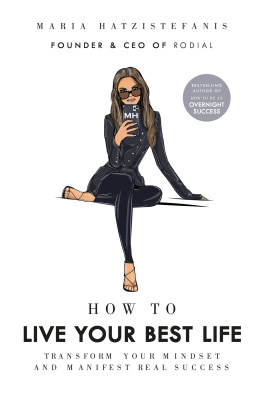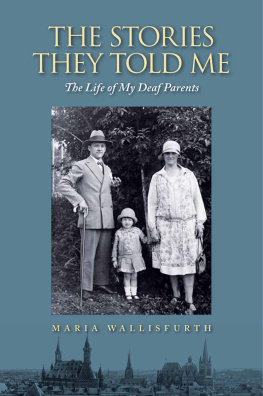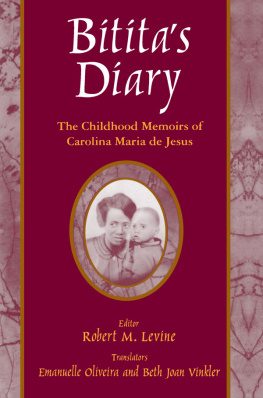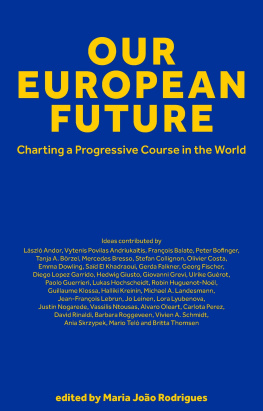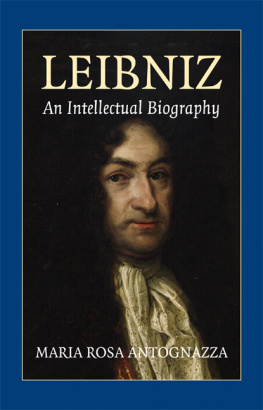The Maria Paradox
How Latinas Can Merge Old World Traditions with New World Self-Esteem
Rosa Maria Gil, DSW, and Carmen Inoa Vazquez, PhD

All rights reserved, including without limitation the right to reproduce this ebook or any portion thereof in any form or by any means, whether electronic or mechanical, now known or hereinafter invented, without the express written permission of the publisher.
Copyright 1996 by Rosa Maria Gil, DSW, and Carmen Inoa Vazquez, PhD
ISBN: 978-1-4976-7279-6
This edition published in 2014 by Open Road Integrated Media, Inc.
180 Maiden Lane
New York, NY 10038
www.openroadmedia.com

With love and gratitude to my family, Rosa, Magali, and Alex, who provided their emotional support throughout this project.
In memory of my Abuela Leonor and Ta Felicita. Their love and nurturance made a difference in m y life; indeed, their spirit is very much present in the pages of this book. Also to my father, Emilio, a true caballero espaol, who always encouraged my pursuit of knowledge because of his belief that la sabidura vale ms que el dinero wisdom is worth more than money.
We dedicate this book to the empowerment of Latinas.
R OSA M ARIA G IL
To the memory of Hector Vazquez, whose wonderful attributes included true friendship, wisdom, and a great sense of humor. Your love for knowledge served as an inspiration to those whose life you touched closely, most especially mine. 1 will always remember you by your own proclamation as the greatest genius who ever lived.
To my children: Jaime, the household computer genius, whose untiring support throughout this project is a beautiful tribute to his love and capacity to help others, and Miguel, whose strength, compassion, diplomacy, and sense of survival have given me great solace and joy. To my mother and father, with all my love for encouraging me to believe that querer es poder.
C ARMEN I NOA V AZQUEZ
Acknowledgments
Mil gracias many thanks to the Latinas who shared their lives and aspirations with us. This book could not have been written without you. We recognize and respect your struggle and celebrate your development as women, who in most instances became nuevas marianistas. We are grateful that your life stories will help many Latinas to better understand their struggle and to undertake the process of change.
We are indebted to Carolyn Fireside, an accomplished writer and new gringa friend, who believed so wholeheartedly in this project that she became one of us. Carolyns enthusiasm was contagious and her support empowering. Thank you, Carolyn, for sharing your ideas with us, and for your love for this project. Without you this book could not have been possible.
Many thanks to Barbara Lowenstein and Madeline Morel for their energy and support. Many thanks to Laura Yorke, our editor, for guiding us throughout this project.
Various friends, family members, and colleagues helped us to write this book by discussing ideas, reading early drafts, researching materials in the library, teaching us computer skills, and taking care of us: Lilliam Barrios Paoli, Isabella Bick, Marta Siberio, Alfredo Arango, Ramon Blandino, Ralph Soto, Yolanda Barro, Jaime Vazquez (your technological support has been priceless; we are truly indebted to you), Cecilia Gaston, Mari Carmen Renard, Lucy Cordoba Martinez, Carmen Torres, Joyce Weinstein, Emma Genijovich, Margarita Pizano, Lourdes Dominguez, Amalia Buendia, Julie Pistorio, Alina Clavijo, Yvette Caro, Abelardo Inoa, Denise McGreevy, Wally Martinez, and Martin Juvelier. Your love and support have helped us throughout the many months of constant struggle in the writing of this book. Gracias!
Special thanks to Manuel Trujillo, our colleague, who encouraged and sought us out to write this book. His commitment to womens rights is indeed evident in his support of this effort.
Contents
Old World vs. New Life
Staying Latina vs. Going Angla
Enforcing Marianismo vs. Forging a Personally Satisfying Lifestyle
Selflessness vs. Self-Fullness
The World of Work vs. the World of Home
Old World Marriage vs. Real-Life Passion
Noble Martyr vs. Nueva Marianista
Superwoman Mother vs. Healthy Human Being
Struggling Alone vs. Finding Support
Going with the Flow vs. Making Waves
Do Not Forget
A Womans Place
Old World vs.
New Life
Natalia, a twenty-five-year-old Argentinian-born architect raised in the United States, was in a bind. She came to therapy torn by doubts and fears which were causing her a lot of emotional anguish. I hate my father! No, I hate my entire family, she told her therapist before adding, No, I really love them. I even love my father, but Oh, I dont know
Natalia was distraught that although shed made the daring move of getting her own apartment, her father still felt he had the right to control her life. Only recently, hed shown up unexpectedly early on a Sunday morning, demanding to know what shed been doing out at two a.m. the night before. From the messages shed played back when she got in, Natalia knew her father had started calling around eight p.m., and called every twenty minutes until around two. At this point, she assumed, mam must have convinced him to go to sleep. But he showed up the next morning anyway.
I just had it. I refused to tell him where I was or who I was with, she continued. Actually, I was with a date at a wedding in Connecticut. My sin, I guess, was not reporting my plans to the family before-hand. Why should I have? Im a twenty-five-year-old self-supporting adult. Anyway, Im just glad my date didnt stay over. If Pap had found a man in my apartment, he probably would have challenged him to a duel!
But what irked Natalia most was her fathers feeling totally justified in treating her like a rebellious adolescent simply because she was a woman. During the Sunday morning meltdown, he actually informed her that it was his responsibility to see to her welfare. Furthermore, hed bellowed, do not forget you owe me respeto ! Then hed stormed out. Now they werent even speaking. That meant Natalias family contact was limited to whispered phone calls with her mother, sister, and brothersnone of whom dared to stand up to Pap.
Natalia very much wanted a life of her own, both social and professional. She desperately wanted her father to be less controlling, less critical, and more loving. She wanted him to be supportive of her needs, not his own. She needed her mother to help her deal with her father, which of course her mother wasnt about to do. Now Natalia was at the point of wondering if she was going to have to fire her family permanently. But when she seriously contemplated severing her relationship with them, she got frightened and began to feel like una mala hija. "I want to be my own person and I want the love of my family. Why is that too much to ask? she complained.
Natalias dilemma is typical of what you and other Latinas face in the United Statesa profound clash between womens expectations here and in your country.

